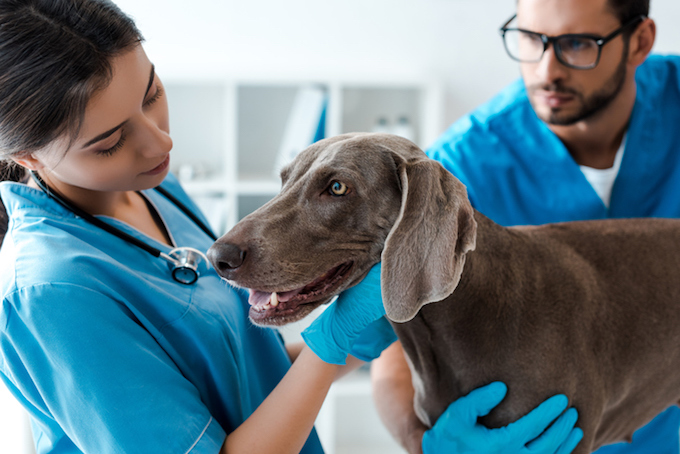Diaphragmatic hernia in dogs happens when certain organs move into the diaphragm. The condition can be congenital or it can be caused by a trauma.
Specifically, the condition involves abdominal organs. These include the intestine, liver, and stomach.
If you see the signs of the condition in your dog, then get to a veterinarian for a proper diagnosis and treatment.
Here’s what you should know about the symptoms, causes, and treatments for the condition.
Symptoms of Diaphragmatic Hernia in Dogs
The condition produces a range of symptoms. For example, some of the most common symptoms include:
- Breathing problems
- Irregular heart rate
- Shock
- Diarrhea
- Vomiting
- Heart murmurs
- Being bloated
Causes of Diaphragmatic Hernia in Dogs

The cause of the condition is usually a trauma. For instance, being hit by a moving vehicle can cause the condition.
However, some cases are congenital. This means a dog is born with the condition. Additionally, Cocker Spaniels and Weimaraners suffer from the condition a lot.
Treatments for Diaphragmatic Hernia in Dogs
Firstly, your vet will ask about your dog’s symptoms. Secondly, your vet will ask about any circumstances where your dog could have suffered from a trauma.
Thirdly, a full physical examination will be carried out. Additionally, blood and urine tests will be taken.
Ultimately, an X-ray can confirm the condition.
Generally, treatment begins with stabilizing a dog’s heart rate and breathing. Afterwards, surgery will be performed. This surgery will repair any damaged organs.
Ultimately, dogs who recover from the condition will need to keep monitoring their heart rate. Your vet will help formulate a safe schedule.
Finally, you can read more about hernias in general and dogs here!
Have you ever cared for a dog who suffered from this condition? How did your vet help your dog recover? Let us know in the comments section below.









